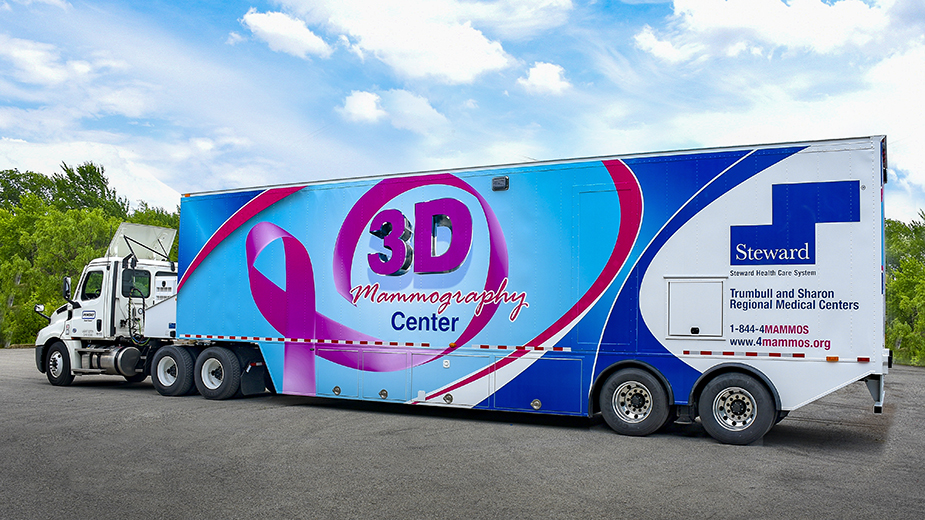YOUNGSTOWN, Ohio – An estimated 10,610 women will be diagnosed with breast cancer in Ohio this year. For an estimated 1,700 Ohio women, this diagnosis will be fatal, according to the American Cancer Society’s Cancer Statistics Center.
To help prove these numbers wrong, local health care facilities are expanding detection technology.
Dr. Carl R. Peterson III is the radiation oncologist, medical director of radiation oncology and medical director of the oncology service line at Mercy Health. He says many comprehensive oncology services have expanded in recent years.
“We provide excellent outcomes these days for cancer care, which is very exciting,” says Peterson. “It’s much different than the old days.”
Peterson says Mercy Health is now a high volume facility for stereotactic body radiation therapy and stereotactic radiosurgery, and offers highly advanced breast specific radiation, which is the same technology that can be found in Cleveland, Pittsburgh and Columbus, without the long drive.
In June, Mercy Health – St. Elizabeth Boardman Hospital announced the addition of a linear accelerator, which minimizes interference in radiation treatment from movement. It replaced a six-year-old machine and became the hospital system’s fifth such machine in the Mahoning Valley, he says.
Motion management from the new equipment should allow for better results in specialized treatments for breast, lung and pancreas tumors.
Peterson says he has been specifically trained for these procedures. Recent additions at Mercy Health allows for the health center to treat patients more quickly and with the best technology, he adds.
“We are bringing technology that was previously unavailable in this region and we are pleased to do it,” says Peterson. “We are very passionate about meeting our communities’ needs.”
Likewise, Steward Health Care System is updating its cancer detection equipment and recently added a 3D mammography center.
The mammography center, a fully equipped truck, was purchased last year and runs between two outpatient facilities – Steward Health Care Center in Cortland and Steward Health Center in Austintown – and also stops at Sharon Regional Medical Center in Sharon, Pa.
The center operates in partnership with Hologic, a medical technology company based in Massachusetts, and offers Genius 3D mammography.
Dr. Koula Colidas, diagnostic interventional radiologist at Sharon Regional and Trumbull Regional Medical centers, says it’s important for women to keep up with monthly self-breast examinations and note unusual changes.
“Breast cancer is often painless,” she says. “A lot of women wait. They know there’s something there, but they wait because it’s not hurting.”
More than 200 clinical studies have shown that 3D mammography is more accurate compared to the 2D predecessor. The Genius 3D mammography also finds between 20% and 65% more invasive breast cancers than 2D mammography and reduces callbacks by up to 40%, according to Steward Health.
The new mammography exams are performed the same way as the conventional 2D exam. They do, however, take more time and provide more accurate results.
With early detection, the five-year survival rate of breast cancer is nearly 100%, health care providers say.
While breast cancer is more common in women, Colidas says men are also at risk.
“If a man feels a lump or there’s something different in the size or the feel of their breast, that is something they should be aware of and speak with their doctor about,” she says.
Pictured at top: The Steward Health Care System put its 3D Mammography Center on the road last year, traveling to three sites.
